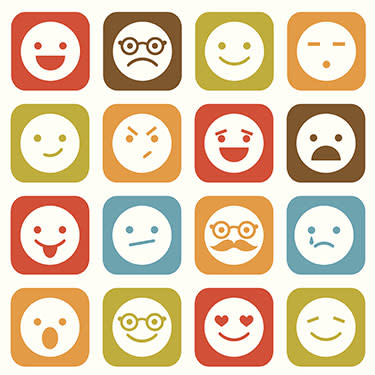From Guilt to Sadness — How Emotions Affect Money Habits
Get In Touch With Your Feelings

We aren't particularly rational creatures when it comes to money.
For example, my family’s recent house search left me underwhelmed — until I walked into what is now our home. I stopped dead in my tracks and knew it was the place for us, even before we'd seen the kitchen or bedrooms. When that gut-deep emotion bubbled, I made the leap into buying, a decision I never regretted.
What we want to avoid are emotional decisions that take us in the wrong direction. Here’s how your feelings can cause you to make bad financial choices — and what to do about it.
Feeling Sad?

Shopping is called retail therapy for a reason. Buying stuff can make us feel better and chase away the blues, at least temporarily. The problem’s when the credit card bills arrive.
Sadness increases the amount of money we're willing to spend and makes us impatient, Harvard University researcher Jennifer Lerner and her colleagues found. When we're sad, we're more likely to give up a larger future benefit to have a smaller benefit right now. That's the exact opposite of the ability to delay gratification, which is what we need to save money and build wealth.
Be aware when you're sad that what you really need isn't more stuff. Exercise, time spent outdoors, or hanging out with a comforting friend will provide more relief. If you can't shake your sadness, you may be suffering from depression and should seek treatment.
When You’re Angry

Angry people tend to take bigger risks and dig in their heels when their choices are questioned, refusing to admit they made a mistake.
Investors do need to take some risk to make their money grow, and being stubborn can help you stick to your budget and investment goals. The trouble comes when you refuse to sell a losing stock or gamble your retirement fund by buying only highly speculative stocks.
Sometimes an objective third party, such as a fee-only financial planner, can give you the distance you need to put aside your anger and make more rational choices.
If You’re Scared

Fear can play a big role in our financial lives. Fear of becoming a bag lady can induce us to save. Fear of leaving our loved ones impoverished can lead us to buy life insurance.
It has the exact opposite effect of anger, making us exaggerate risks rather than discount them. Fear also causes us to second-guess ourselves, making us abandon a plan of action if it goes even slightly off course. For example, you may bail out of a stock when the market hits bottom (and miss the subsequent rebound).
Once again, we can benefit from an experienced guide, such as a financial planner, to discuss our fears and help us stay the course.
Feeling Guilty?

Guilt is what we feel when we violate our internal standards. If we value our family but spend too much time working, we feel guilty — and may try to make up for that with expensive presents or dinners out.
People who are more prone to guilt are also more prone to altruism. In the best-case scenario, altruism can lead us to share our abundance with others through charitable contributions. In the worse case, we can spend money we need for ourselves on others.
Here is where setting limits can help. We can keep ourselves from going overboard by creating budgets for spending that can’t be influenced by guilt, such as holiday presents.
When You’re Thankful

Gratitude isn't just a pleasant emotion. Feeling thankful also "reduces excessive economic impatience," according to another Lerner study. It helps offset our tendency to discount the value of future rewards — in other words, it helps us delay gratification.
So next time you're struck by the urge to spend money or dip into your savings, take a moment and list at least 10 things that make you feel grateful. You may well decide that you have more than enough.
Liz Weston is an award-winning journalist and author of several money books, including the best-selling Your Credit Score. She writes about personal finance at her site, AskLizWeston. You can like her on Facebook and follow her on Twitter.
You Might Also Like:
5 Apps Changing the Way We Spend Money
When You Need a Financial Expert and When You Don’t
The ONE Piece of Money Advice You Need

 Yahoo Finance
Yahoo Finance 
